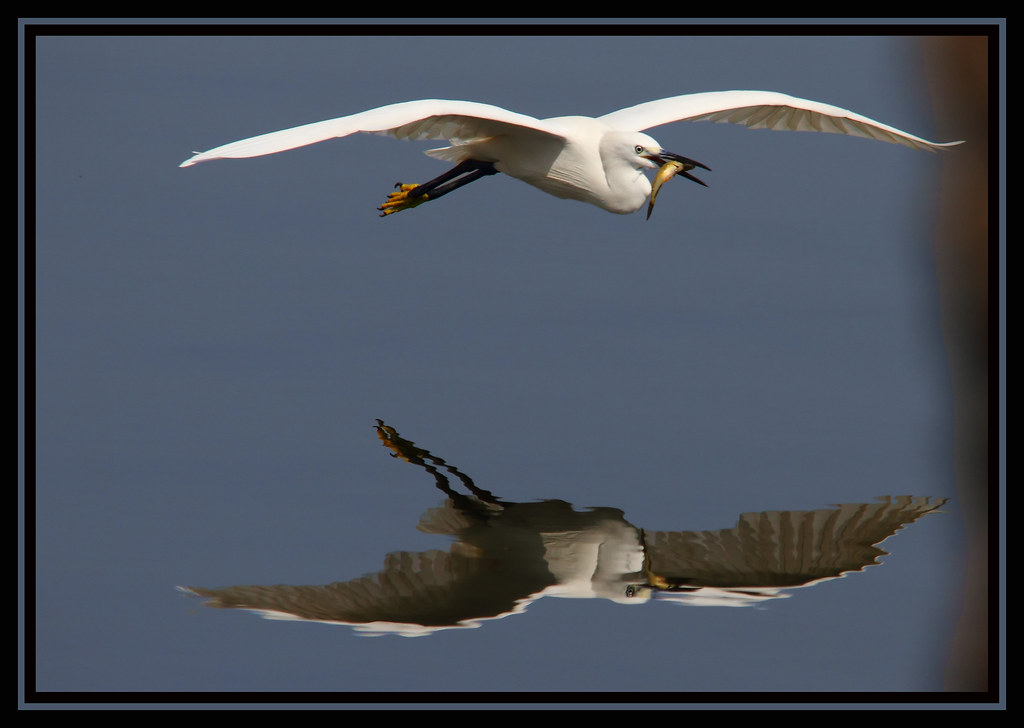In this concrete jungle of Mumbai, there exists a land which is close to the oasis of nature. Powai. Situated at the outskirts of Aarey & SGNP - the lungs of the city, a lake with hills as the backdrop bordering it, the area is greener and serene than most of the city. I consider myself fortunate to be residing here, because I can just hop, skip & jump to the lake and amble along to brighten up my mood while the lake remains engrossed in its own moods – changing from hour to hour & season to season.

From a happy welcoming kind of a lake in the winters, it starts becoming a bit harsh with the arrival of the summer and definitely becomes sullen as the summer progresses. The monsoon, however, rejuvenates it, as it receives the bounty of life from the sky, getting ready for the next lot of visitors. However, it is the mood swings that the lake undergoes daily that I find more interesting.
Usually, I see the lake on my way back from the office – the chaotic traffic continuing in full blare at its bank, the lake resembling one of the urban dwellers, having had a stressful day at work, its surface looking affected, the waves exhibiting its higher stress level. As the evening progresses, one can see the harsh neon lights of the hotels around getting distorted in the darkish stressed waters of the lake, irritating the lake which is trying to rest after a hard day.
But the day I am able to visit the lake early morning, I find it in an absolutely different mood. After having settled down in its own solitude in the night, the surface of the lake is quiet & calm, reflecting the world around with absolute clarity. It almost brings to mind the words of Henry David Thoreau, the lake resembling the earth's eye; looking into which the beholder measures the depth of his own nature. Though this mirror like mood starts changing with the unfolding day starts putting the water in turmoil, it is indeed a joy to see the reflections – especially of the winged characters in the water.
This is where I find the nature guiding us mortal beings. According to Democritus, truth lies at the bottom of a lake, the water of which serves as a mirror in which objects may be reflected. But a lake can be a mirror only when it lies unaffected, alone in its stillness. Only in quiet waters do things mirror themselves undistorted.
Similarly in life, in order to understand the perspectives, we need to find the equilibrium where the mind is calm & the heart is at peace. A stressed mind and turbulent emotions only manage to present the distorted version of reality, which in turn does not allow us to see the truth and skew our decisions. What we need is Equanimity – a state of unperturbed-ness.
Rumi had said - Let the waters settle, and you will see stars and the moon mirrored in your own being. But much before Rumi, it was Lao Tzu, the mystic & philosopher from China, who had said: No thought, no action, no movement, total stillness: only thus can one manifest the true nature and law of things from within and unconsciously, and at last become one with heaven and earth.
Zhuangzi, another Chinese philosopher and the Tao’ist thinker recognised this simile of water and human mind almost 2300 years ago. He wrote: Water becomes clear and transparent when in a quiescent stage. How much the more wonderful will be the mind of a sage when poised in quiescence! It is the mirror of heaven and earth, reflecting the ten thousand things.
It is interesting to find the Chinese philosophy & Taoism so much in sync with Buddhism that early when the Buddhism had just started spreading. Perhaps Zhuangzi had already heard of the metamorphosis of the prince from India, Siddharth, who retreated to the stillness and solitude within himself and emerged as Gautam Buddha, with a new philosophy for the mankind - relevant even now more than two thousand years later..
Like Siddharth, what we need is a state of equanimity which alone can be our friend when the whole world is in turmoil. Equanimity is the only word used by Antonius Pius, the Roman emperor of 2nd Century AD to sum up the philosophy of life and how right he was. Of course, equanimity also means not to get carried away when thing are going our way. The praise, the flattery is also like the waves on the water, again distorting the image & our perspectives.
There has always been, and much more today, a need of infinite patience and calm reflections. The world is grooving more and more to the tune of instant karma, expecting instant cures, rewards & reactions. A phone in hand wherever we go almost makes it compelling to respond – irrespective of the situation. Little do we realize that there are very few situations in life that require an instant reaction – everything else can wait for a calm, patient and well considered response. Stephen Covey has written - between stimulus and response there is a space. In that space lies our freedom and power to choose our response. In those choices lie our growth and our happiness.
.
William Osler summed it up quite well in his valedictory address to the medical students of University of Pennsylvania:
Be calm and strong and patient. Meet failure and disappointment with courage. Rise superior to the trials of life, and never give in to hopelessness or despair. In danger, in adversity, cling to your principles and ideals. Aequanimitas!
Getting back to the mirror like surface of Powai Lake, I realize that it makes it easier for the birds out to find their morning meal – just like this egret returning to the land after a successful sojourn over the lake.
